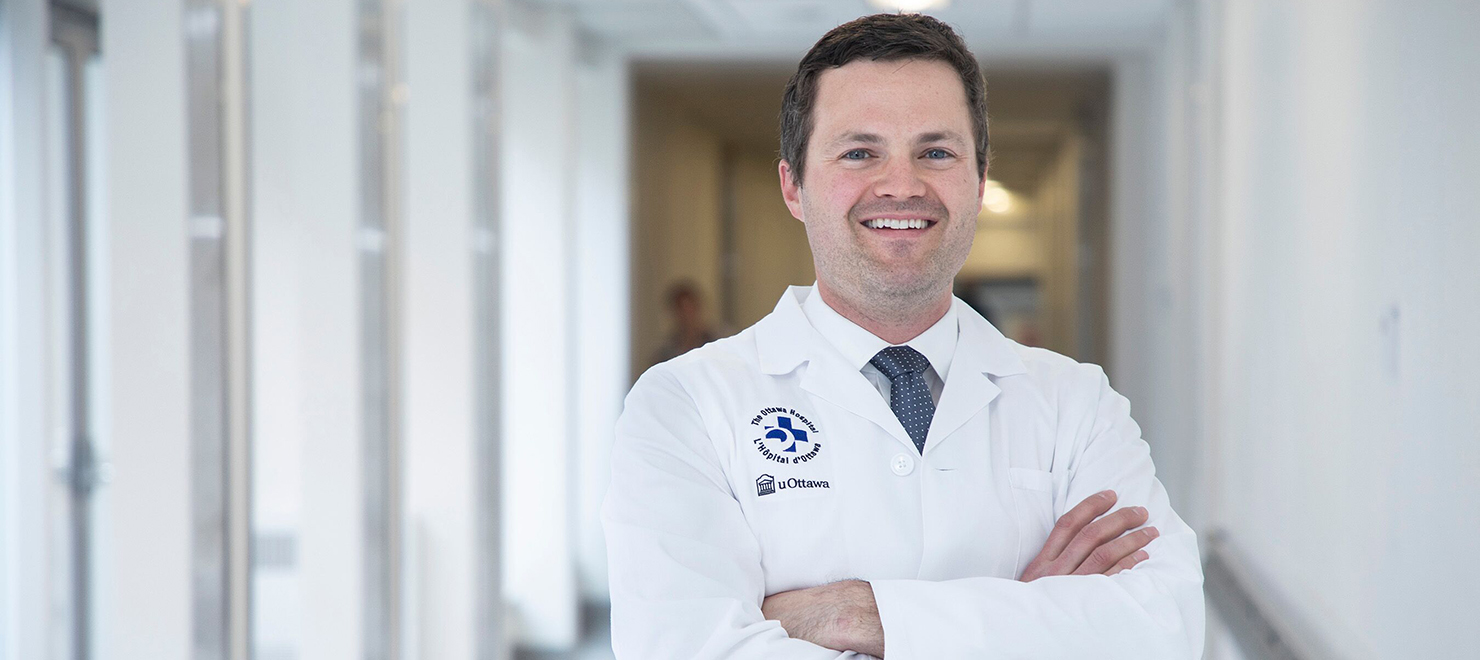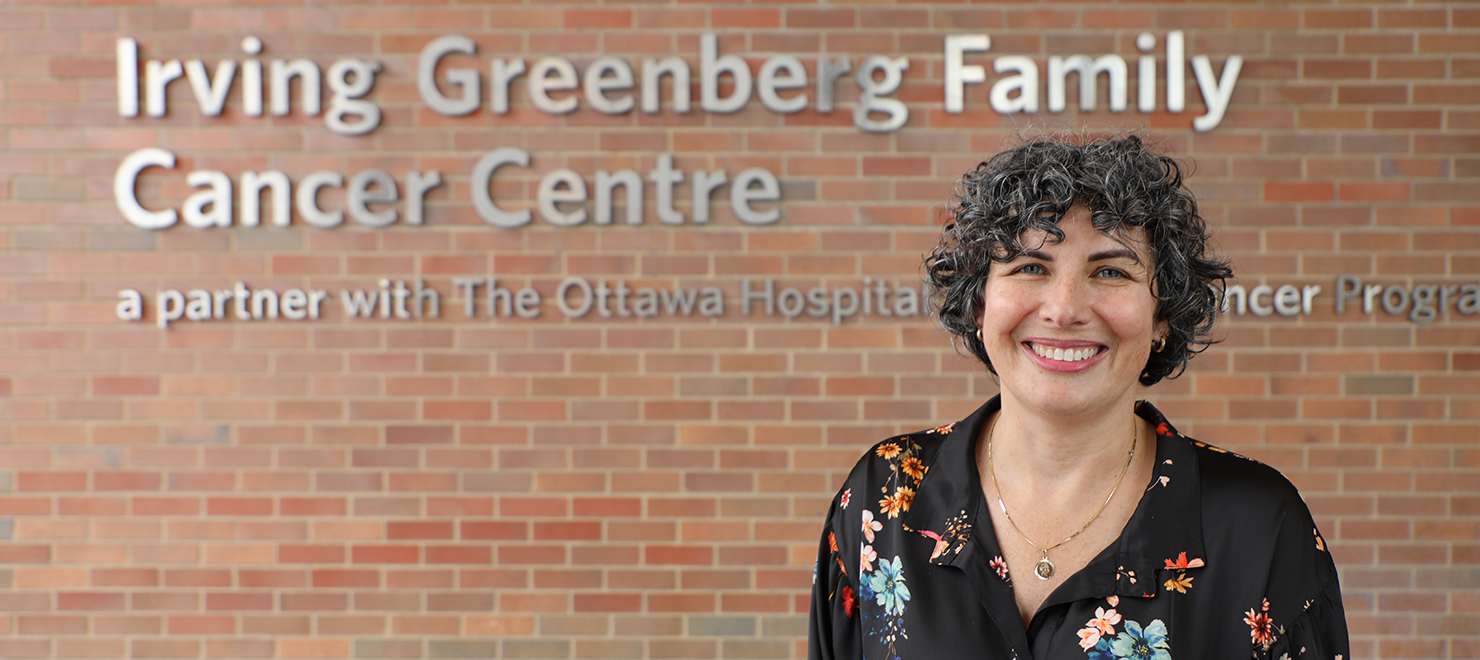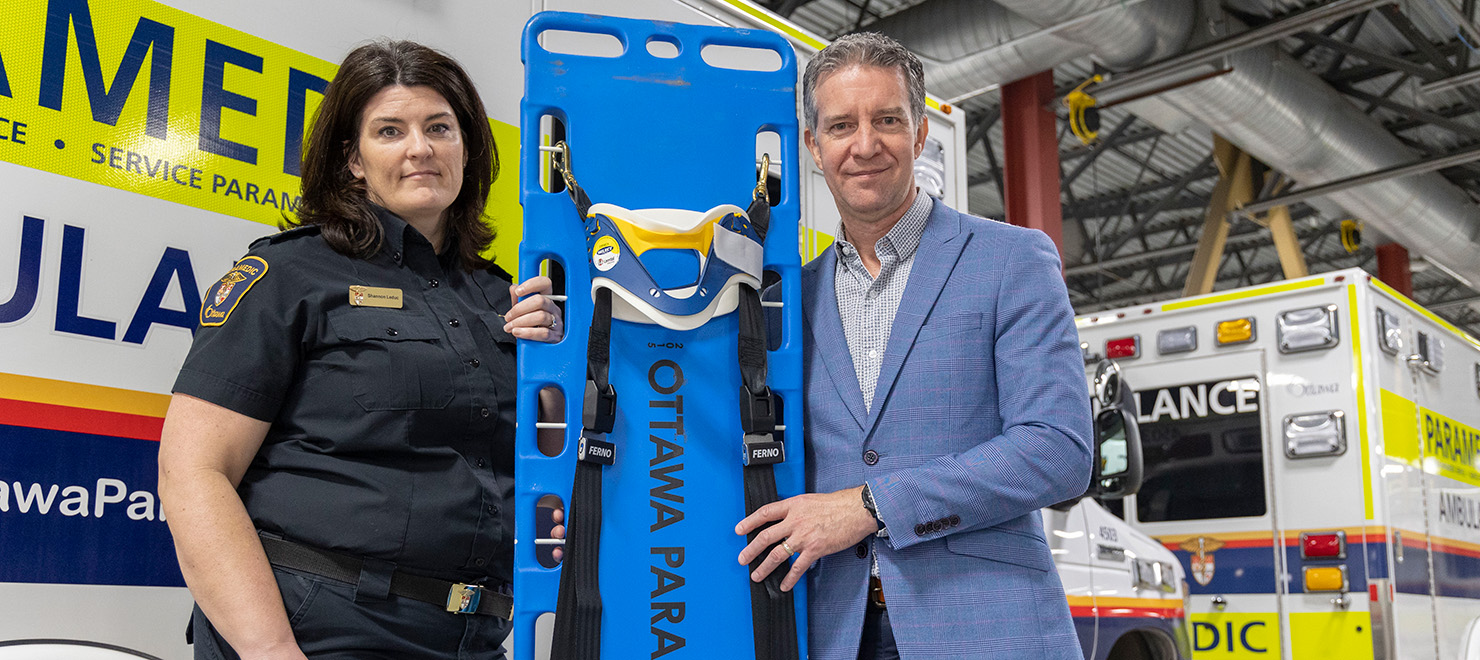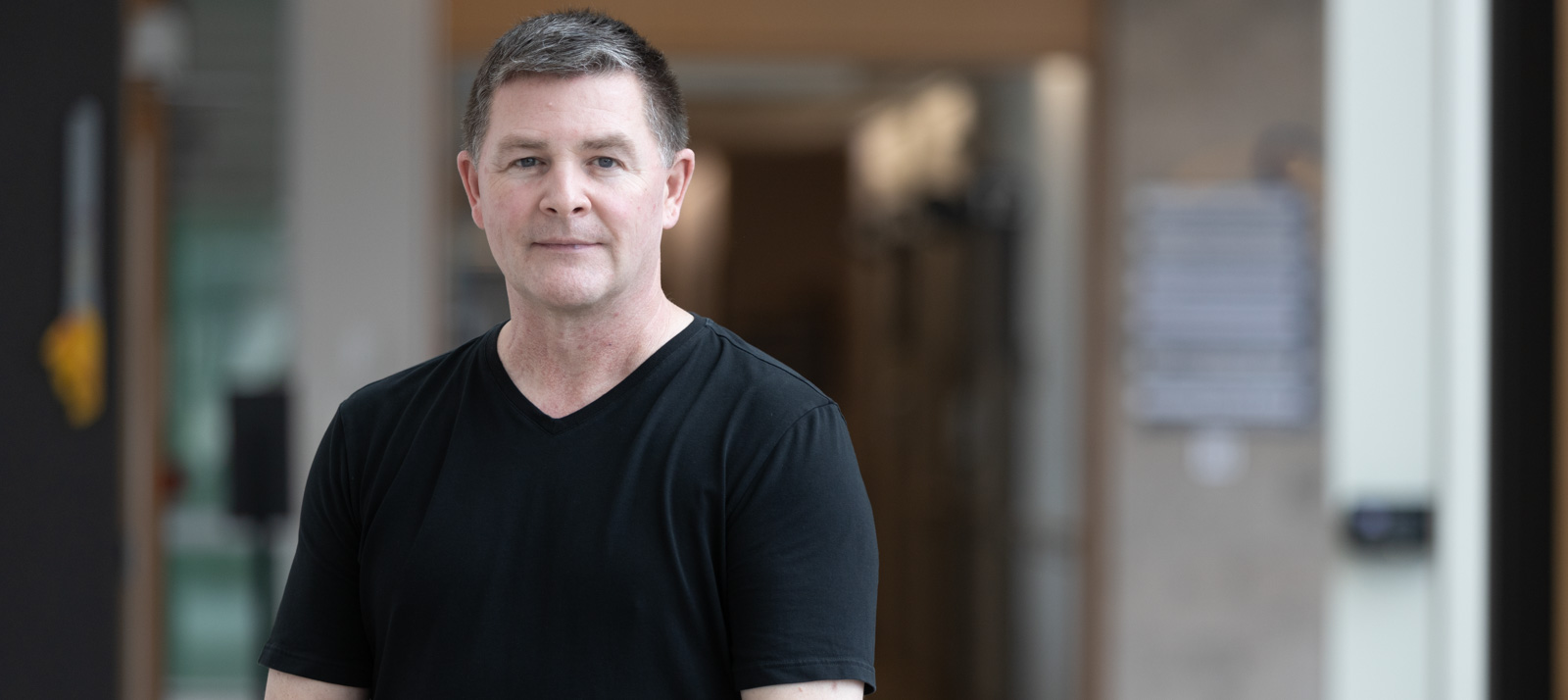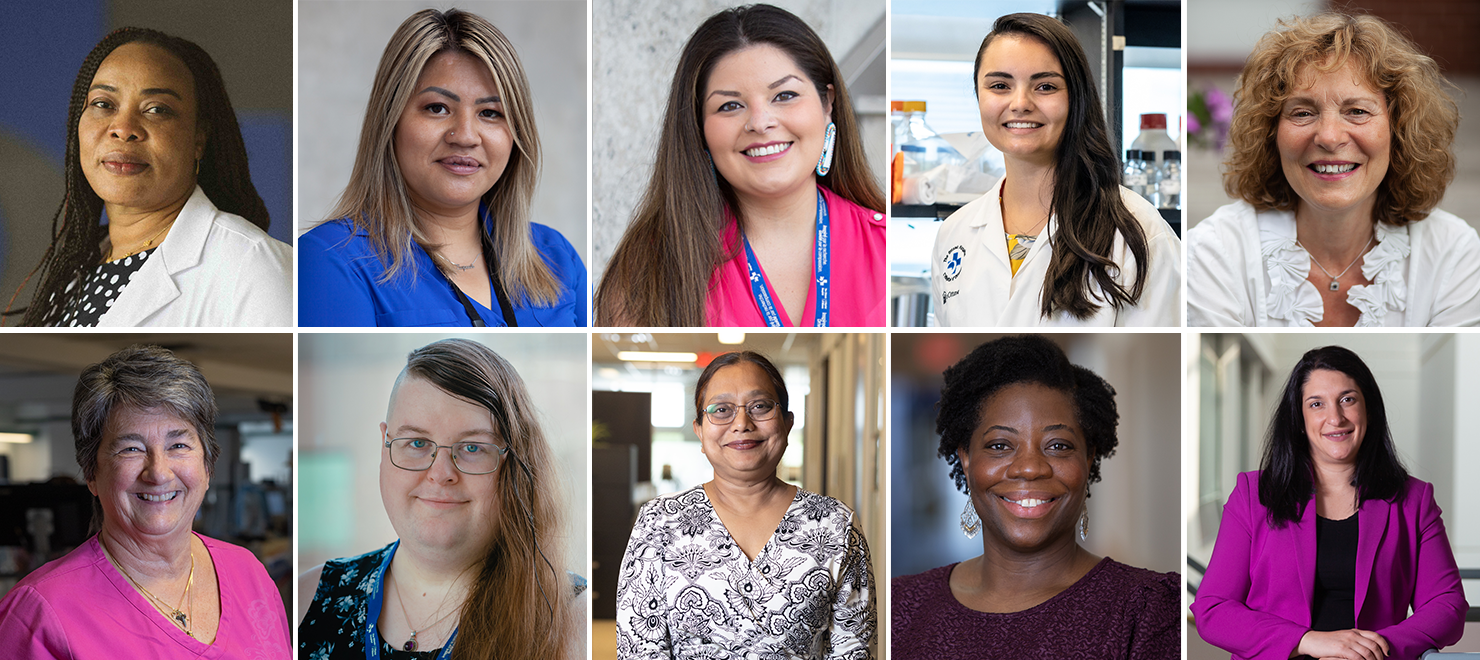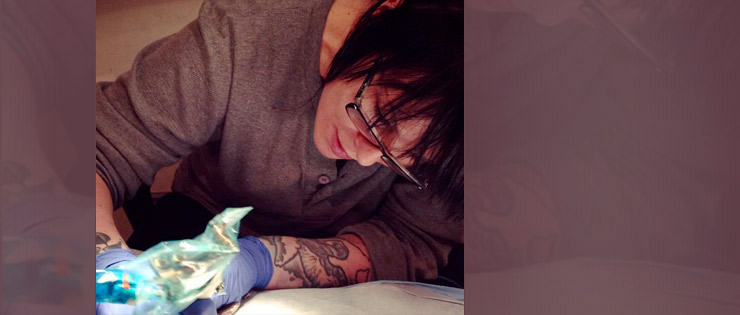
Ottawa resident Sarah Rogers would have been taking blood thinners for life, if not for a rule that showed she was at low risk of having a second blood clot.
Ottawa tattoo artist Sarah Rogers thought she’d pulled a muscle when her right leg started hurting in 2011. But instead of going away, the pain got worse.
After feeling dizzy on the way to work, she went to the emergency department, where she learned her leg had a blood clot, known as venous thromboembolism. Then she was referred to The Ottawa Hospital’s thrombosis clinic for treatment.
“It was so disconcerting—there was nothing I did to make it happen,” said the 38-year-old.
About half of venous thromboembolism cases are like Rogers’, and happen for no apparent reason. The clots can be life-threatening if they travel to the lungs, so guidelines suggest that patients take blood thinners for the rest of their lives to prevent future clots.
But blood thinners come with challenges, including an increased risk of major bleeding. Like most patients, Rogers was on warfarin, which interacts with leafy greens. This meant she couldn’t eat as much kale, broccoli and spinach as she would have liked. She also had to go into the hospital once a week to check her dose of medication.
“If my blood was too thin, I felt lightheaded. If I wasn’t taking enough blood thinner, I would have pains in my leg,” she said.
However, after her clot was treated, Rogers was able to safely stop taking warfarin, thanks to a study led by Dr. Marc Rodger. His team developed a simple rule that identifies women who are at low risk of having a second blood clot, and can therefore stop taking blood thinners.
“We see two to three patients with unexplained blood clots every day at The Ottawa Hospital,” said Dr. Rodger, senior scientist and thrombosis specialist at The Ottawa Hospital and professor at the University of Ottawa. “If this rule was applied across Canada, we estimate that over 10,000 women a year would be able to come off blood thinners.”
Today Rogers is happy to be blood clot and blood thinner free.
“It was absolutely wonderful to get off the blood thinners, as much as the treatment was necessary in the short term,” she said. “I could not wait to eat a giant bowl of kale salad.”

Support patient care and research at
The Ottawa Hospital
You might also like…
Do you have a surgery coming up? Here are five “prehab” tips to help you recover faster
You’ve probably heard about rehabilitation, but what about “prehabilitation”? Prehab is all about getting your body and mind in top shape before surgery so you can enjoy a smoother, quicker recovery. Discover five essential prehab strategies from researcher Dr. Daniel McIsaac.
By thinking differently, this research team is improving the lives of people with cancer
Taking a different approach to clinical trials, the REthinking Clinical Trials (REaCT) program aims to answer some of the most important and practical questions that affect both patients with cancer and our health-care system. Find out what sets REaCT apart and makes the program so special to participants like Beth.
Does this backboard look comfortable to you?
Imagine this: You’re flat on your back, strapped tight to a rigid backboard, unable to move at all. Fortunately, this is no longer the reality for most low-risk trauma patients when they’re brought to hospital in our province. Find out how researchers at The Ottawa Hospital teamed up with paramedics across Ontario to make the journey a lot more comfortable.
Ever have a tough time making a medical decision? These tools can help you
When faced with a medical condition, there may not be one clear path forward — but we have something to help you with that. The Ottawa Hospital is home to the largest collection of decision aids in the world, covering everything from various cancers to depression to allergies.
After a traumatic brain injury, this physician is on a mission to improve inclusion of docs with disabilities
Motivated by his own experience, Dr. Michael Quon has helped create a new accessibility and accommodation policy for physicians with disabilities in The Ottawa Hospital’s Department of Medicine.
A special video message for International Women’s Day
Every year on March 8, we recognize International Women’s Day to celebrate how far we have come with equal rights and opportunities for women, and to acknowledge how far we still have left to go. This video is a short-but-sweet reminder that the women who work for our organization are driven, caring, innovative and powerful.


 To reset, hold the Ctrl key, then press 0.
To reset, hold the Ctrl key, then press 0.
